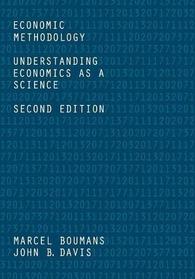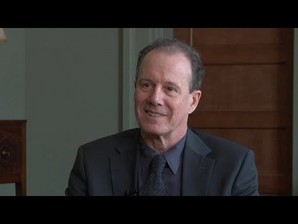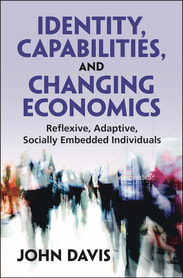I've worked on identity, individual and social, for many years. Forthcoming in February is my third book on this:
Identity, Capabilities and Changing Economics
Identity, Capabilities and Changing Economics
The TOC is here.
| toc.pdf | |
| File Size: | 92 kb |
| File Type: | |
I've also been working more on Stratification economics. Several recent papers are:
“A general theory of social economic stratification: Stigmatization, exclusion, and capability shortfalls,” Review of Evolutionary Political Economy 3: 3 (2022): 493-513; also at: https://papers.ssrn.com/sol3/papers.cfm?abstract_id=4126307
“Stratification Economics as an Economics of Exclusion,” Journal of Economics, Race, and Policy 2:3 (2019): 163-
172; also at: https://papers.ssrn.com/sol3/papers.cfm?abstract_id=3328127
“Stratification economics and identity economics,” Cambridge Journal of Economics 39 (2015): 1215-1229.
Presented several times recently is a working paper:
"Stratification economics: Historical Origins and Theoretical Foundations"
My work on Stratification Economics is tied to how I treat individual identity. People are socially embedded in their social identities, both the relational and categorical kinds. The Review of Evolutionary Political Economy paper above and the fifth chapter of my forthcoming Identity, Capabilities and Changing Economics book lay this out.
| chicago_two_sides.pdf | |
| File Size: | 368 kb |
| File Type: | |
This paper continues our research program: 'the unity of science and disunity of economics'
See:
Ambrosino, Angela, Mario Cedrini, and John Davis (2024) “Todays’ Economics: One, No One and One Hundred Thousand,” European Journal of the History of Economic Thought 31: 1.
Ambrosino, Angela, Mario Cedrini, and John Davis (2021) “The Unity of Science and Disunity of Economics,” Cambridge Journal of Economics 45: 4: 631–654.
Slides from some recent presentations:
"Stratification Economics: Historical Origins and Theoretical Foundations"
"Rethinking Subjectivity in Economics: Situated Cognition and embodied and distributed cognition"
"Change in Economics and Changing Economics"
"Social Identity and the Individual"
"Epistemological Perspectives on Simulations in Macroeconomics"
"The Unity of Science and the Disunity of Economics"
are on my Lectures, Seminars, Workshops page.
See:
Ambrosino, Angela, Mario Cedrini, and John Davis (2024) “Todays’ Economics: One, No One and One Hundred Thousand,” European Journal of the History of Economic Thought 31: 1.
Ambrosino, Angela, Mario Cedrini, and John Davis (2021) “The Unity of Science and Disunity of Economics,” Cambridge Journal of Economics 45: 4: 631–654.
Slides from some recent presentations:
"Stratification Economics: Historical Origins and Theoretical Foundations"
"Rethinking Subjectivity in Economics: Situated Cognition and embodied and distributed cognition"
"Change in Economics and Changing Economics"
"Social Identity and the Individual"
"Epistemological Perspectives on Simulations in Macroeconomics"
"The Unity of Science and the Disunity of Economics"
are on my Lectures, Seminars, Workshops page.
Routledge Inclusive Economics Prize
Please see the announcement for the Routledge Inclusive Economics Prize that highlights diverse voices in economics, showcases new approaches, decolonises economics, and promotes inclusivity and equity in research. Prize details and application procedures are at:
https://think.taylorandfrancis.com/routledge-inclusive-economics-prize/
Please see the announcement for the Routledge Inclusive Economics Prize that highlights diverse voices in economics, showcases new approaches, decolonises economics, and promotes inclusivity and equity in research. Prize details and application procedures are at:
https://think.taylorandfrancis.com/routledge-inclusive-economics-prize/

Robert McMaster and I published a book on the concept of care in health care with Routledge in the Advances in Social Economics series: Health Care Economics
The emphasis as in the italics in the title is on care. Standard health economics fails to account for the nature of care in health care. This has important ramifications for the analysis and valuation of care, and therefore for the pattern of health and medical care provision. This book sets out an alternative approach that places care at the center of an economics of health, showing how essential it is that care is appropriately recognized in health care policy as a means of enhancing the dignity of the individual.

Economic Methodology: Understanding Economics as a Science, that Marcel Boumans and I published in 2010, came out in a second edition in 2016. This is an introduction to the field of economic methodology, with a capstone chapter "Value Judgments in Economics." The new edition has applications at the end of each chapter that we believe make teaching the material interesting to students.

John B. Davis, Professor Emeritus of Economics, Marquette University, Professor Emeritus of Economics, University of Amsterdam is author of Keynes’s Philosophical Development (Cambridge, 1994), The Theory of the Individual in Economics (Routledge, 2003), Individuals and Identity in Economics (Cambridge, 2011), and co-author with Marcel Boumans of Economic Methodology: Understanding Economics as a Science (Palgrave, 2010). He has been a visiting professor at the Sorbonne, Cambridge University, Erasmus University, and Duke University. He was an editor of the Review of Social Economy, was co-editor with Wade Hands of the Journal of Economic Methodology, and is editor of the Routledge Advances in Social Economics book series. He is a past president or chair of the History of Economics Society, the International Network for Economic Method, and the Association for Social Economics, and is a past vice-president of the European Society for the History of Economic Thought. He has taught two dozen different courses. His areas of research are economic methodology, identity in economics, Keynes, Sraffa, complexity, stratification economics, social economics, identity economics, capabilities, economics and ethics, and health economics.

